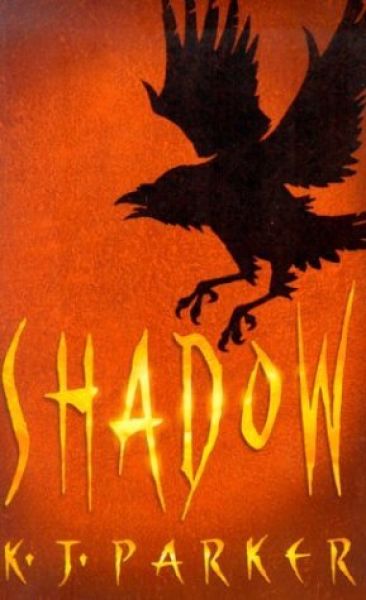Shadow: Book One of the Scavenger Trilogy
Shadow (Scavenger Trilogy, volume 1)
By K J Parker

14 Aug, 2014
0 comments
A battered man wakes on a battlefield, surrounded by the dead of two armies. His own clothing gives no hint which side he was on and when he stops to think about it, neither do his memories because he is an amnesiac. Happily, from time to time he encounters people who recognize him; less happily, recognition is immediately followed by attempts to kill the nameless man.
As murder attempt after murder attempt is foiled by the amnesiac’s preternatural skill at killing, the amnesiac begins to suspect that perhaps he isn’t the nicest person around. While he cannot do anything about the past, he can try to be a better person in the future.
As Arthur C. Clarke once observed, nothing is quite so ominous as “means well.”
After inadvertently bisecting the assistant of a con-woman named Copis, the amnesiac agrees to take the dead man’s place posing as the god Poldarn, an arrangement that will provide the amnesiac with a living while he tries to piece together who he was and who he will become. As they wander a war-torn Empire, a land divided by internal conflicts and subject to brutal attacks from mysterious raiders, nothing “Poldarn” learns suggests he would be happy if he found out who he was, particularly since one of the leading possibilities is “harbinger of the apocalypse”.
As it turns out, not only is “Poldarn” an even worse person than he suspects, he has a rare talent for acts of well-intended charity whose outcomes are horrific; one moment of mercy, for example, guarantees a civil war in which thousands will die. Mere proximity to “Poldarn” is very nearly a death sentence and even when the people around him who know his true identity take his destructive predilections into account as they try to use him in their grand schemes, the results are catastrophic for almost all concerned.
Andrew Wheeler sent me this black comedy ten years and 363 days ago. At the time I compared it to The Bourne Identity done as a secondary world fantasy, with the twist that the likable protagonist is the villain. Or one of the villains, at any rate, because Parker books aren’t long on anyone who is “good” as such and even things that would normally be considered virtuous in any other author’s work – repentance, filial piety, true love – have a way of instigating murder, mass and otherwise, the destruction of cities and worse.
While the book is funnier than it should be, the raiders are a particularly nasty sort, self-righteous monsters who get terribly affronted whenever the people they have targeted for robbery, rape and extermination manage to act in self-defense. Let’s hope “Poldarn” does for them what he did for peace in the Empire.
Although this functions as a stand-along novel, it is also the first volume in a trilogy whose details I confess I do not recall at this time, although I am very sure they won’t involve the phrase “and they all lived happily ever after.”
